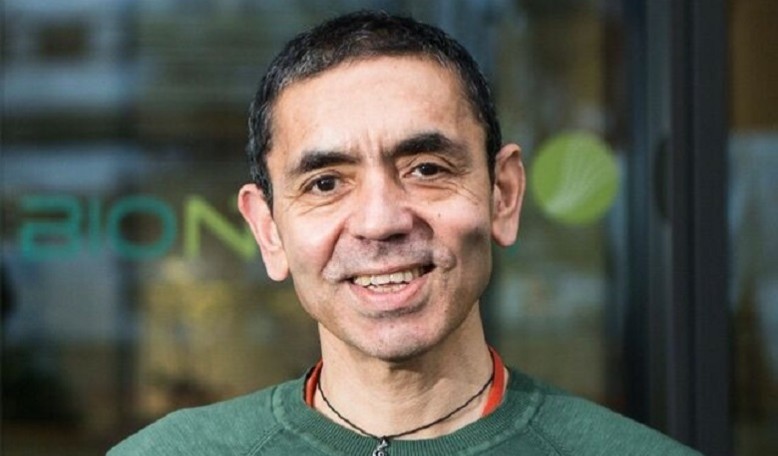Uğur Şahin recommends administering booster shot after three months
The 2019 Mustafa(Pbuh) Prize laureate, the scientist who developed the first Coronavirus vaccine almost a year ago, has recently talked about the novel variant of Coronavirus and how it can be dealt with via administering booster shot all around the world.
MSTF Media reports:
As concerns are mounting that the Omicron variant spreading rapidly around the world most probably decreases the efficacy of administering two doses of COVID-19 vaccine drastically, Ugur Sahin, CEO of BioNTech and a 2019 Mustafa
Prize laureate, explains how they will cope with this new challenge.
In an interview with Der Spiegel, he said Omicron was an “unexpected development.”
According to Sahin, the mutation of viruses is a normal thing on the whole, but surprisingly the new mutation of SARS-CoV-2 has occurred too soon. He said he expected this mutation of the virus a year later, but now this variant is among us.
Saying that at first it was unclear whether this variant could easily escape the immune system, he noted: “Fortunately, it turned out to only be a partial escape variant, which, in principle, can be controlled with vaccinations.”
He said they have plans to find answers and that they have been preparing for new variants of this virus since spring.
According to the preliminary data of their study, the individuals who have received at least three shots of the BioNTech vaccine should now be well protected against Omicron variant.
“Three doses significantly neutralize the virus. Further data will show how strong the protection is and how long it lasts,” Sahin highlighted.
Explaining the stages of their study, he said “The first thing we do in the lab is look at how antibodies inhibit the uptake of viruses into cells. If they do this particularly well, they will prevent infection and thus disease of any degree.”
“The second component we look at is the memory function of the immune system through T cells. Even in the absence of antibodies, good memory created by vaccination would lead the T cells to successfully fight the virus after infection,” he continued, noting “In the case of Omicron, we believe the T cells should be largely effective. And there is thus good protection against serious illness. At least temporarily.”
Asked how long after receiving the second dose people need to get the booster shot considering the current situation, Sahin said “If Omicron continues to spread, as it appears it will, it will make scientific sense to offer a booster after just three months.”
He also pointed out that if Omicron variant continues to prevail, another booster shot will be needed as early as summer for everyone who gets the third dose. “However, the fourth shot could also be a vaccine adapted to an Omicron variant,” Sahin noted.
Asked if it would be possible that there’s no need to a new customized vaccine and that administering the booster shots with the current vaccine will be enough, he replied: “We will have to wait and see whether Omicron prevails and what the clinical picture is then. It will take a few more weeks to answer all these questions.”
Talking about Omicron itself, Sahin said “I've been thinking hard over the past few days about why we’re actually seeing a variant like Omicron right now, what caused it. In doing so, I remembered being concerned about one thing earlier this year: In people with suppressed immune systems, the virus might get too much time to accumulate mutations and evolve.”
“It appears to me that this is exactly what happened with Omicron: The virus has been able to undergo a prolonged evolution in a small group of people,” he continued.
Asked whether this was an unfortunate coincidence or if such strongly mutated variants are a constant threat, he answered: “It certainly could happen more often. Basically, it’s like this: Once Omicron spreads, the virus variant that comes after it will have to come up with something new to make the leap into the next generation. We would then be constantly facing a new pathogen.”
Sahin has announced that their current vaccine could be adapted “relatively quickly” if it is needed to combat the Omicron variant.
Ugur Sahin was awarded the 2019 Mustafa
Prize in Life & Medical Science and Technology for his achievements in ‘Development and Clinical Testing of mRNA-based Cancer Vaccines that are Tailored to the Mutation Profile of a Cancer Patient.’

